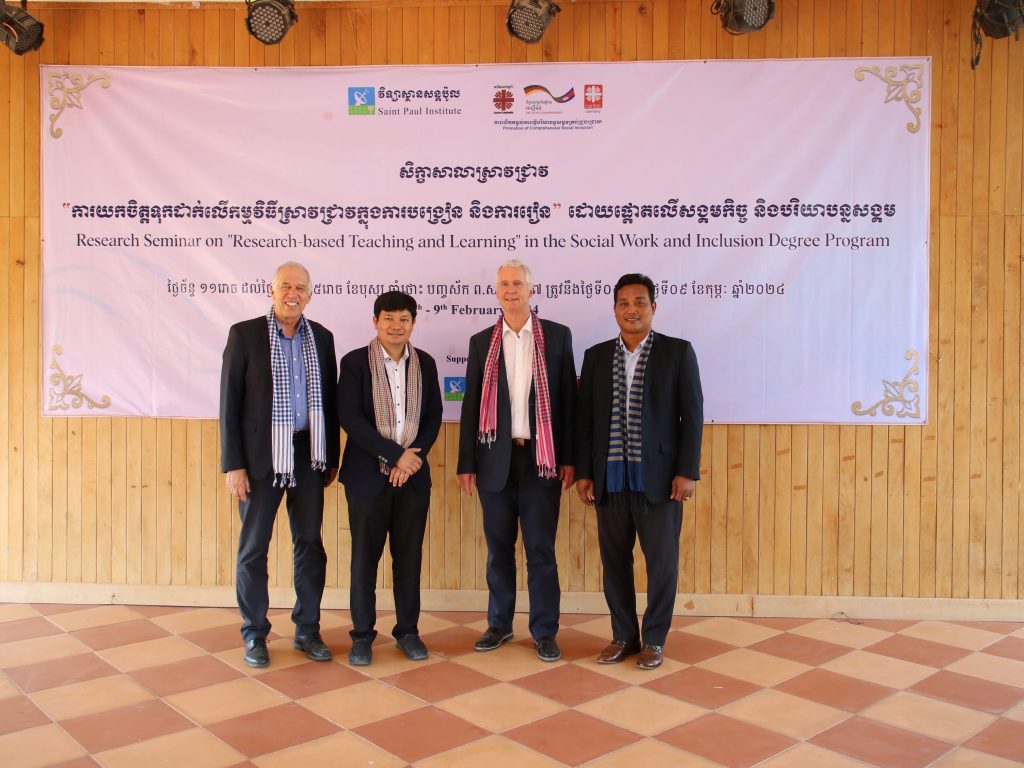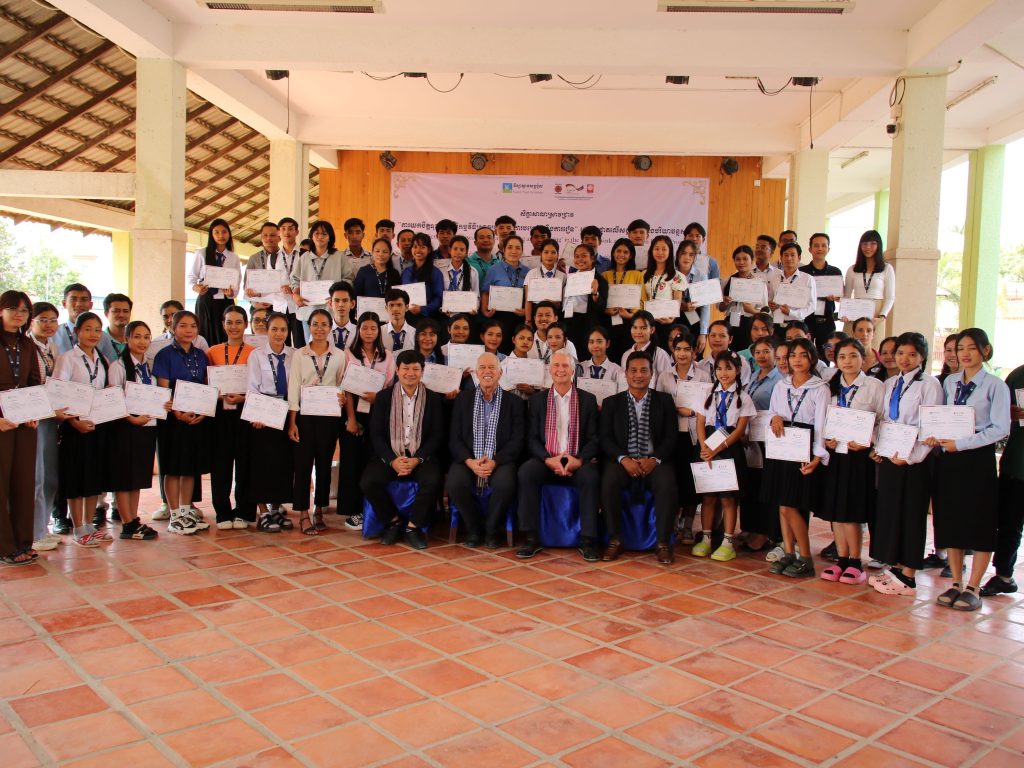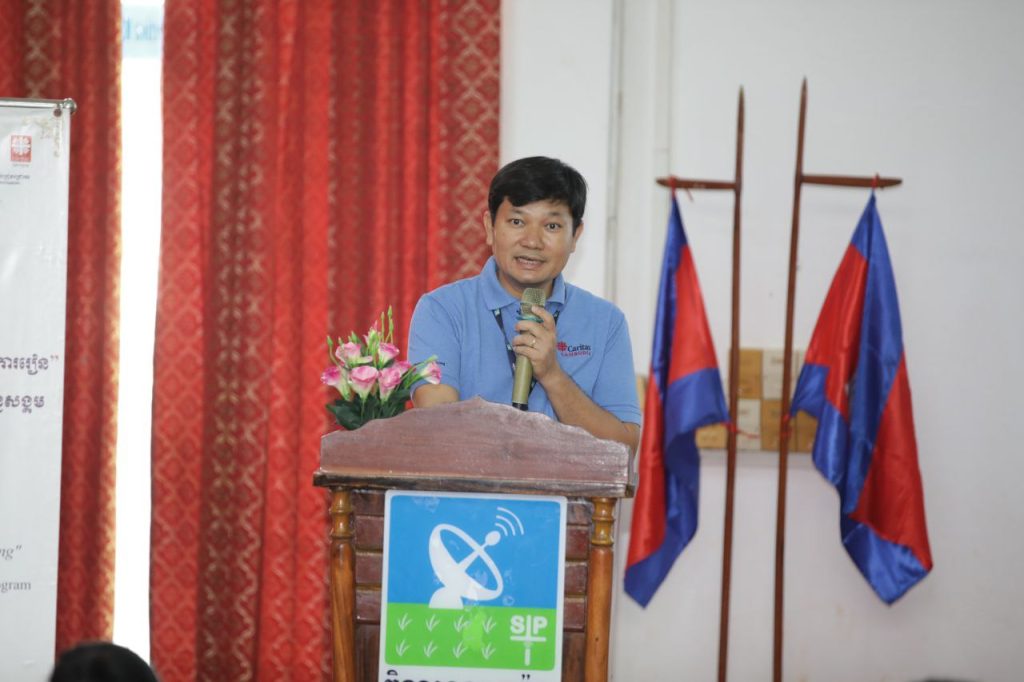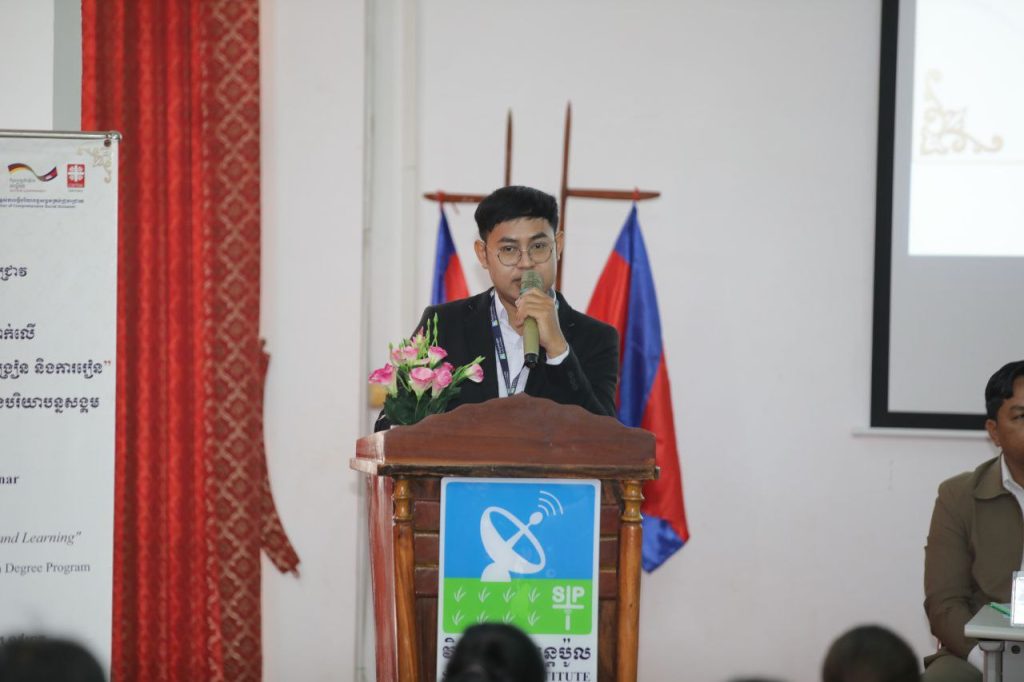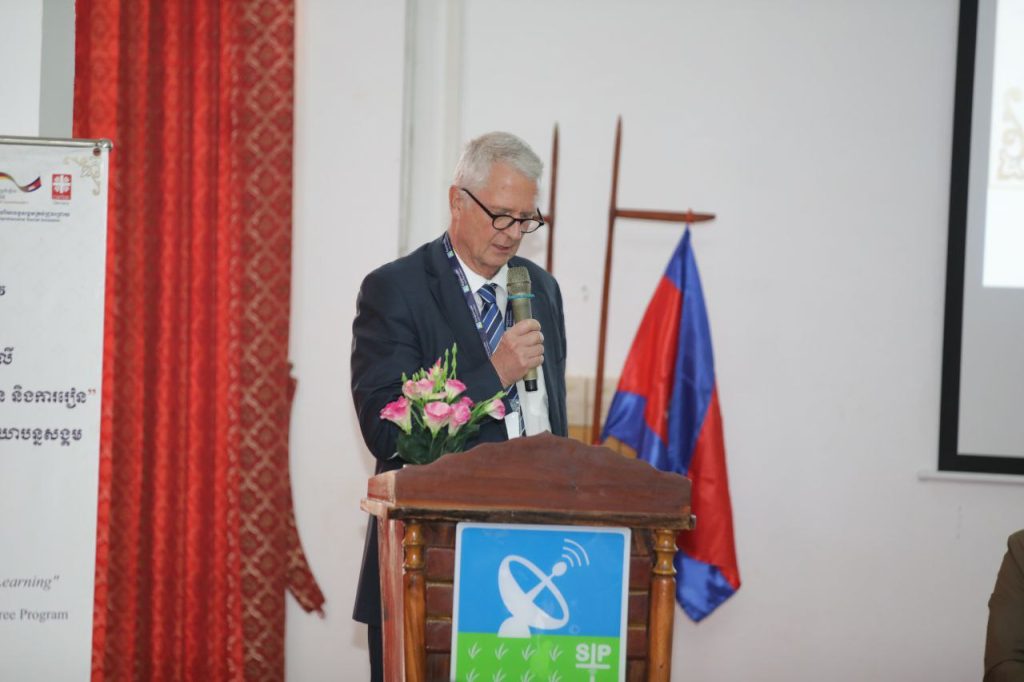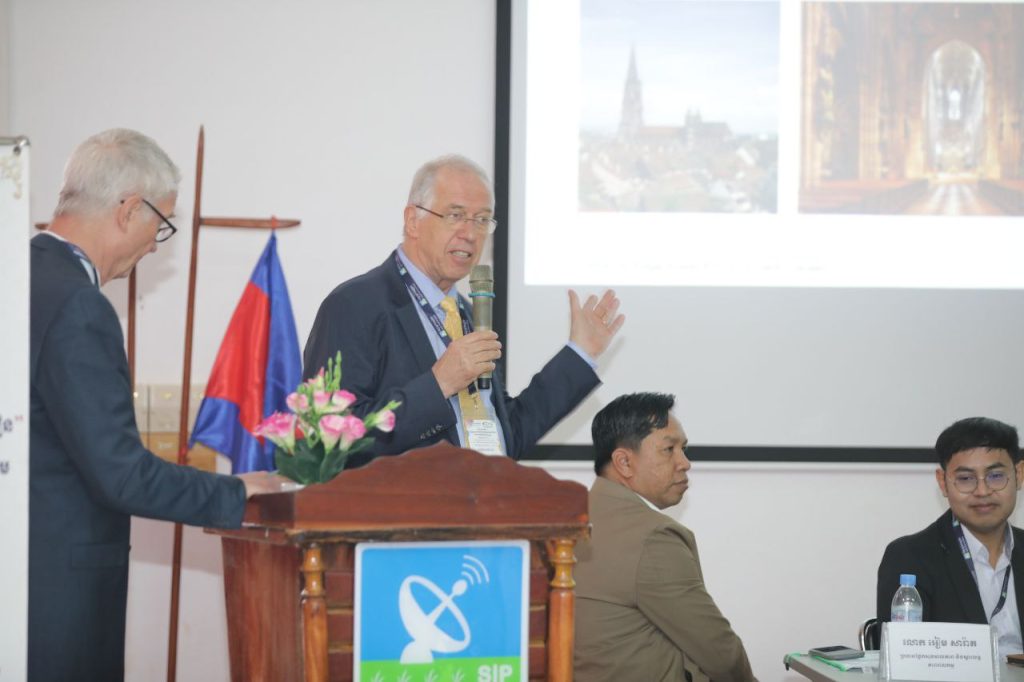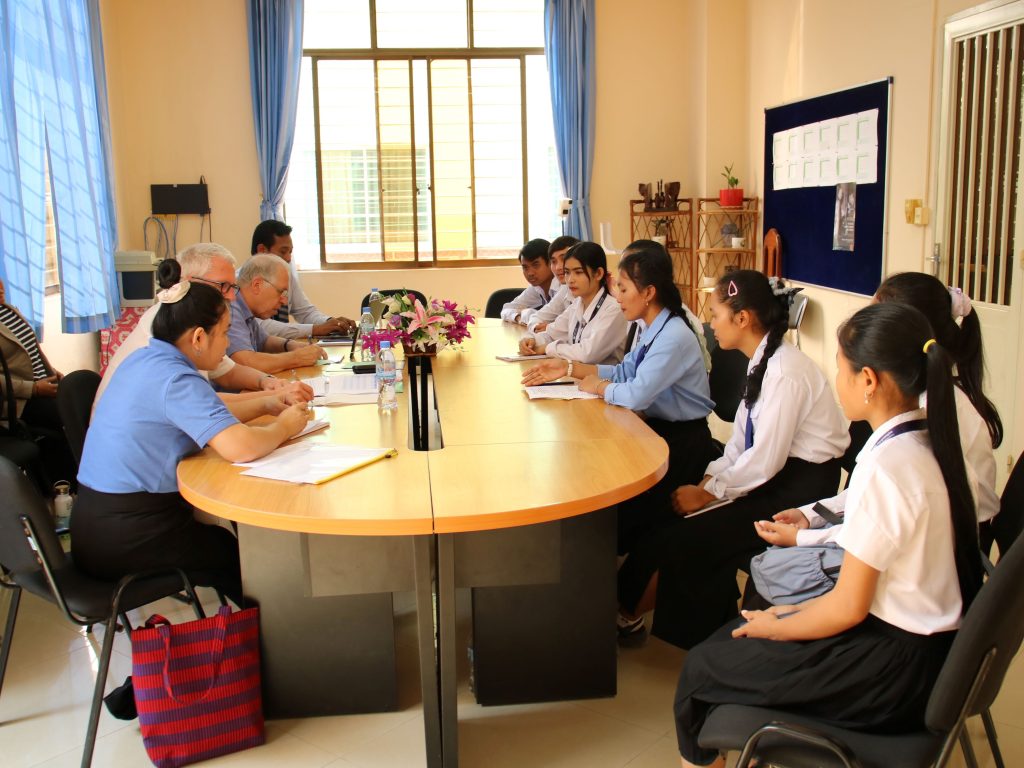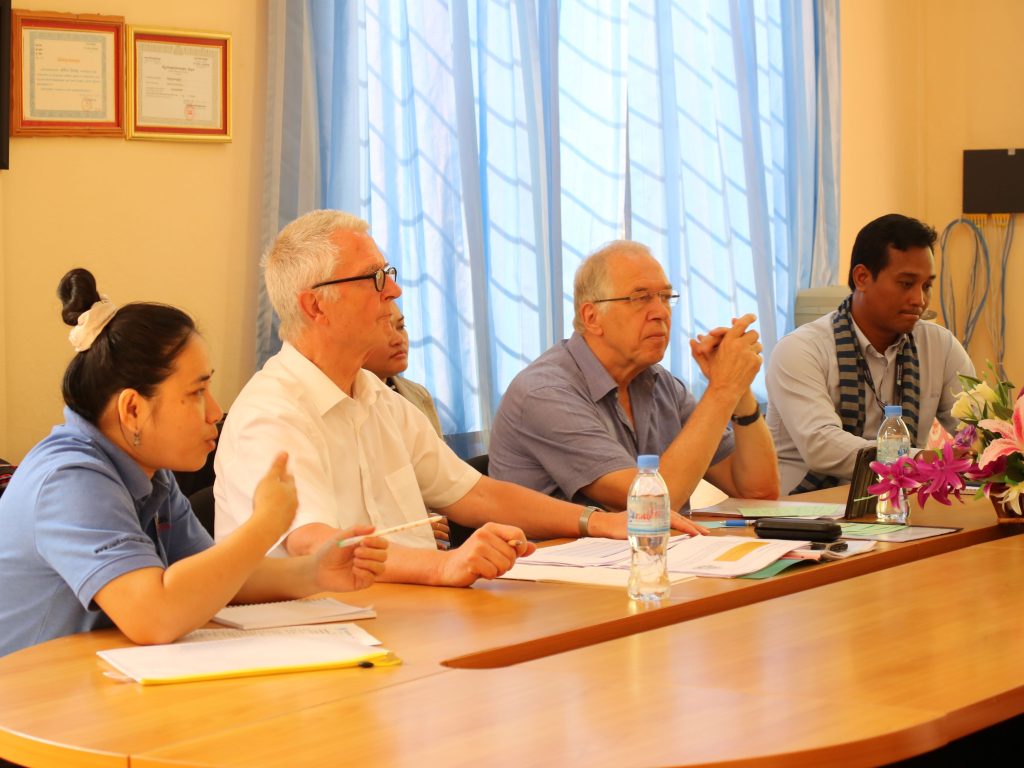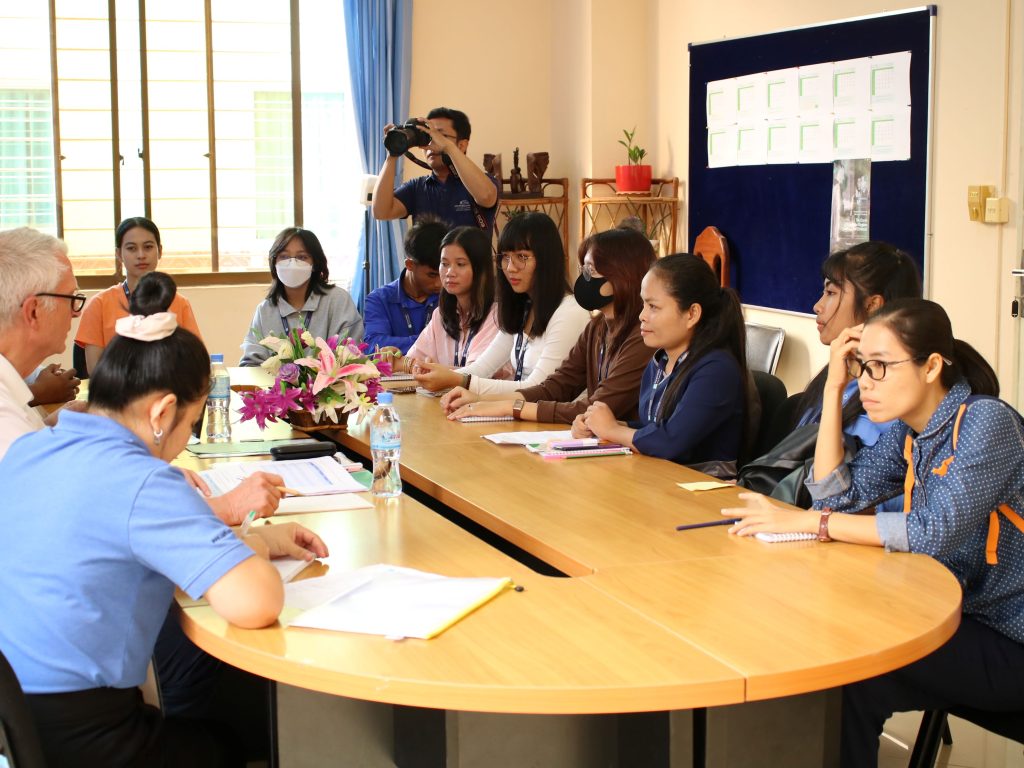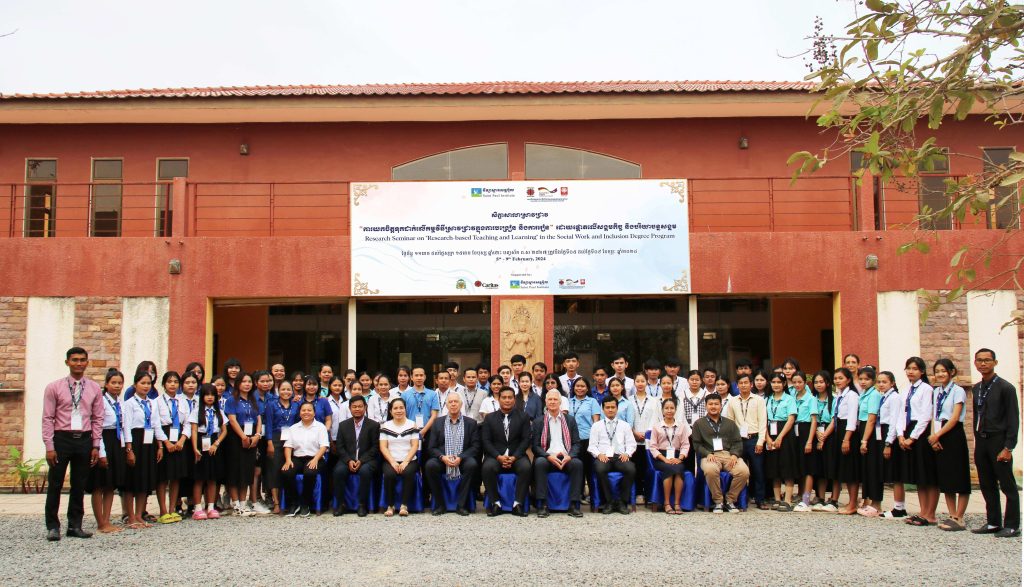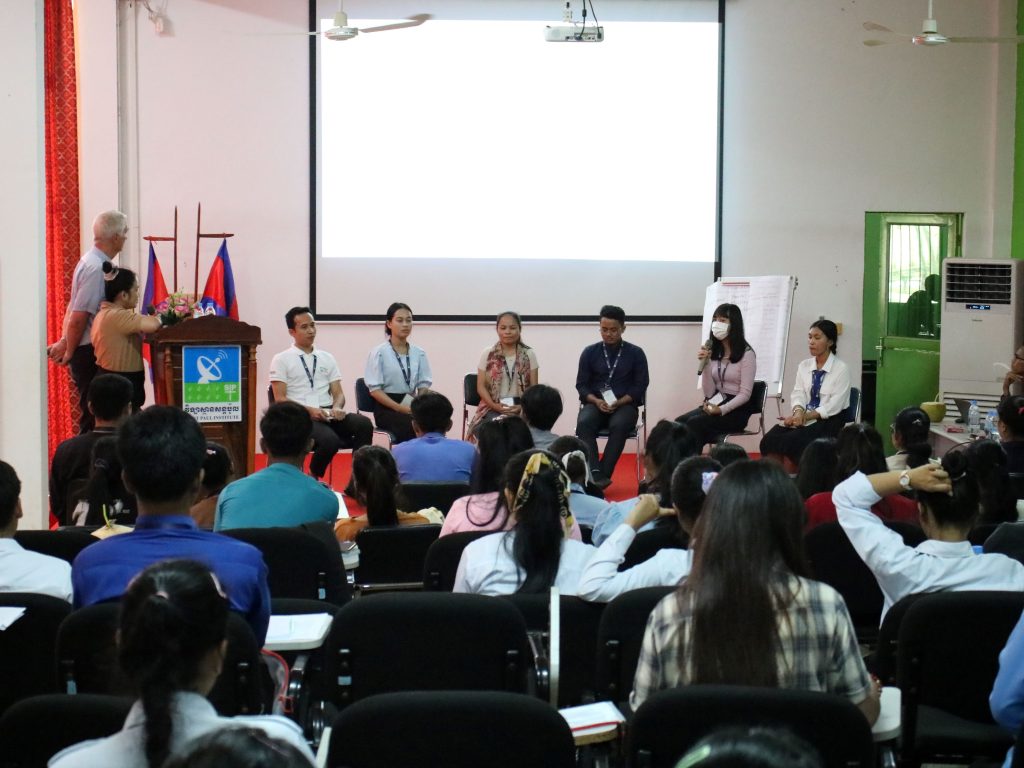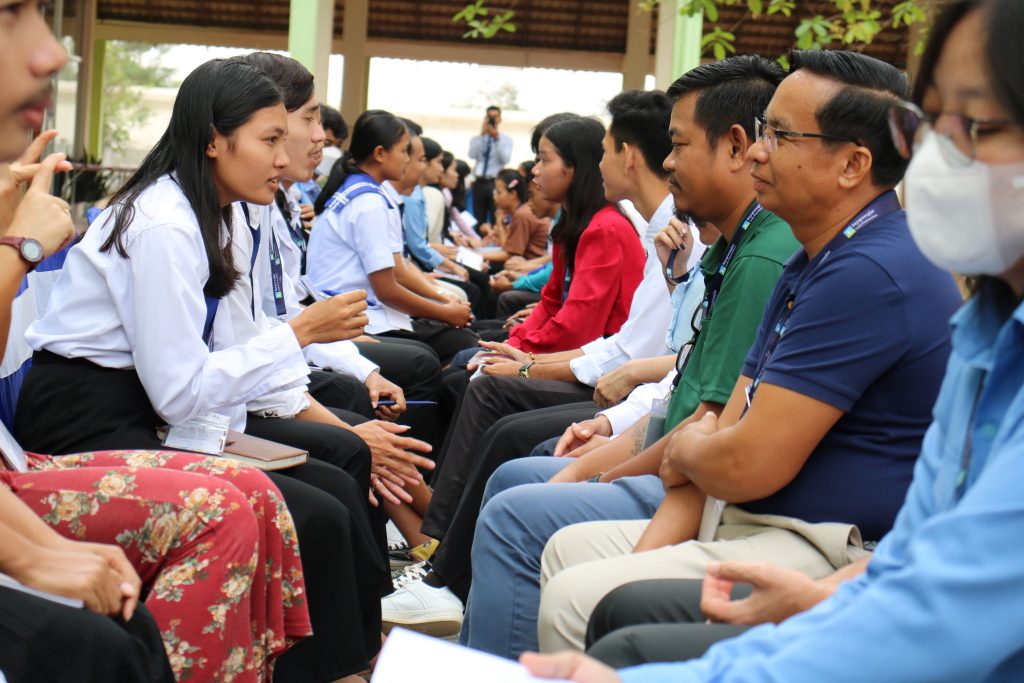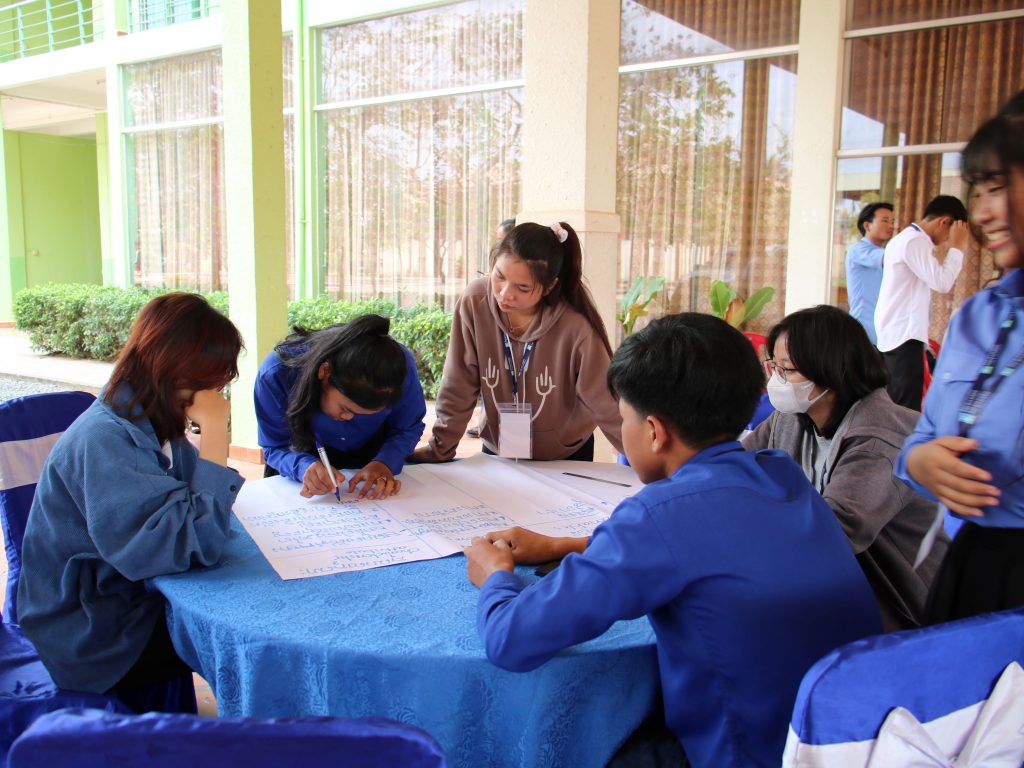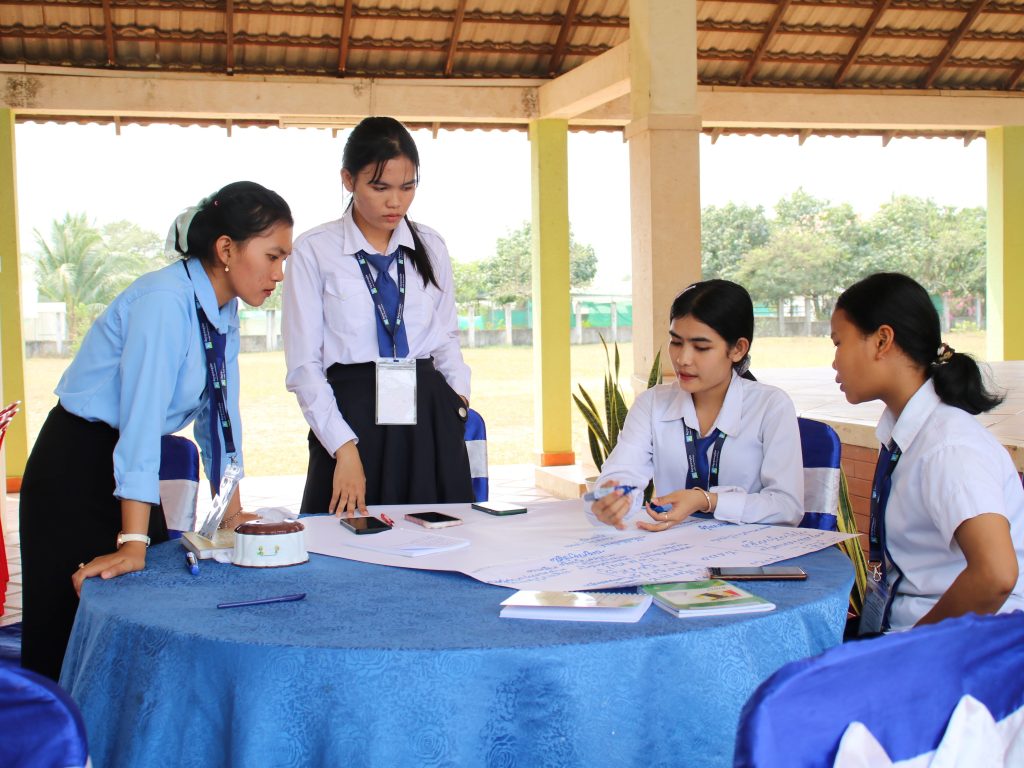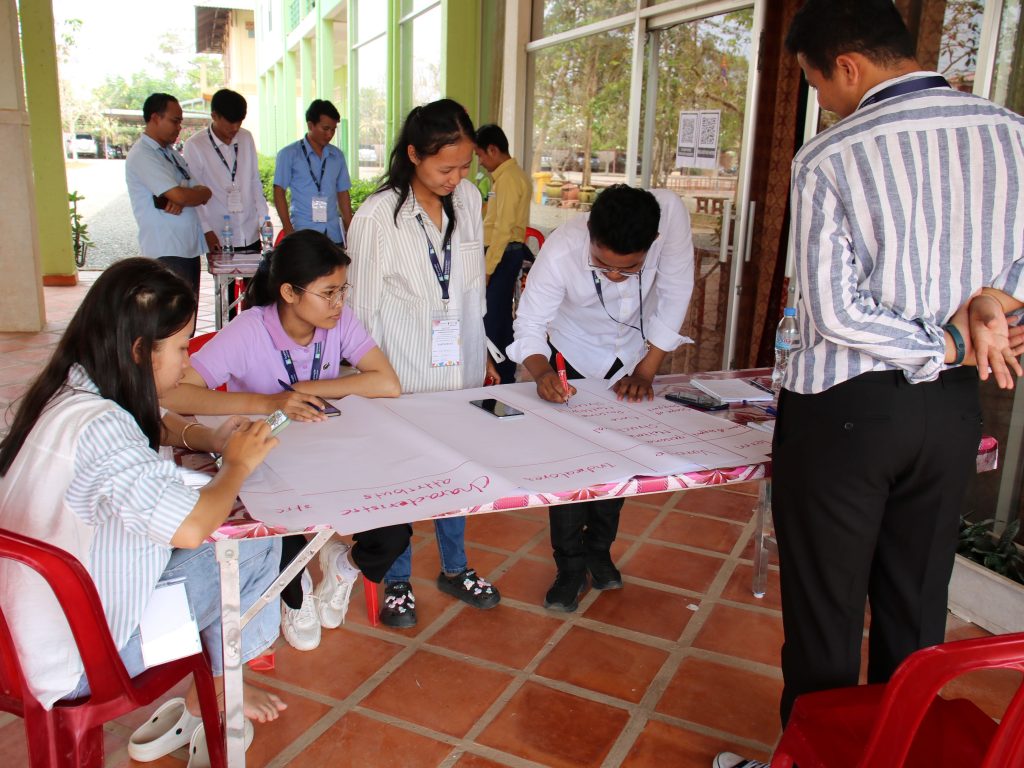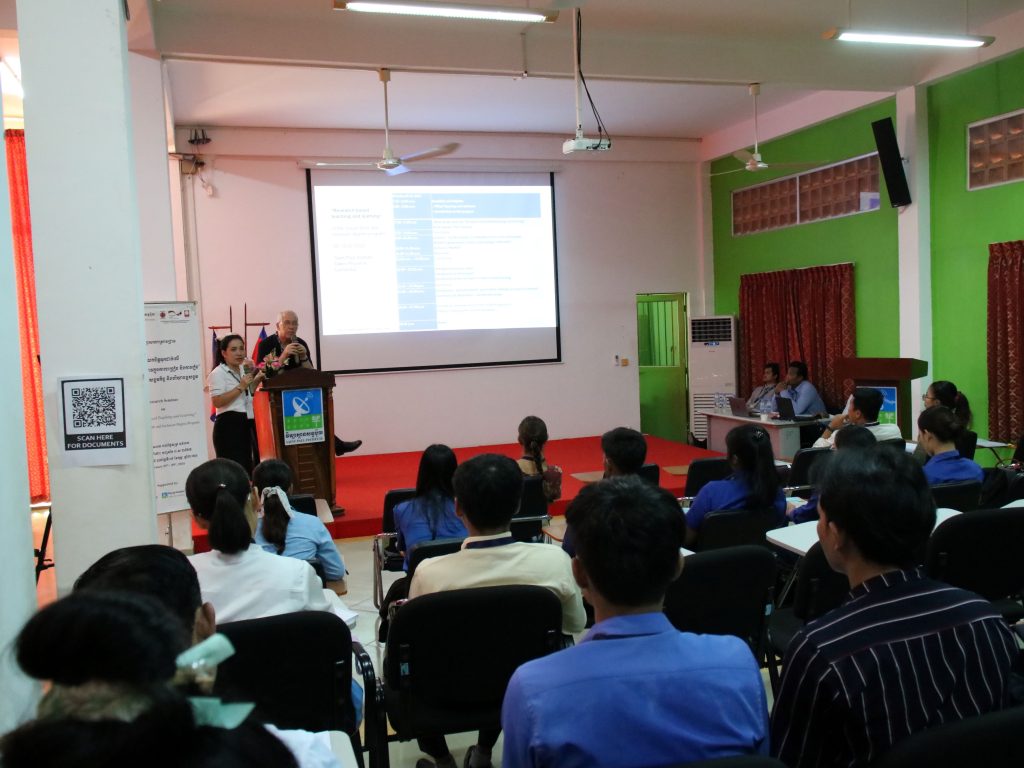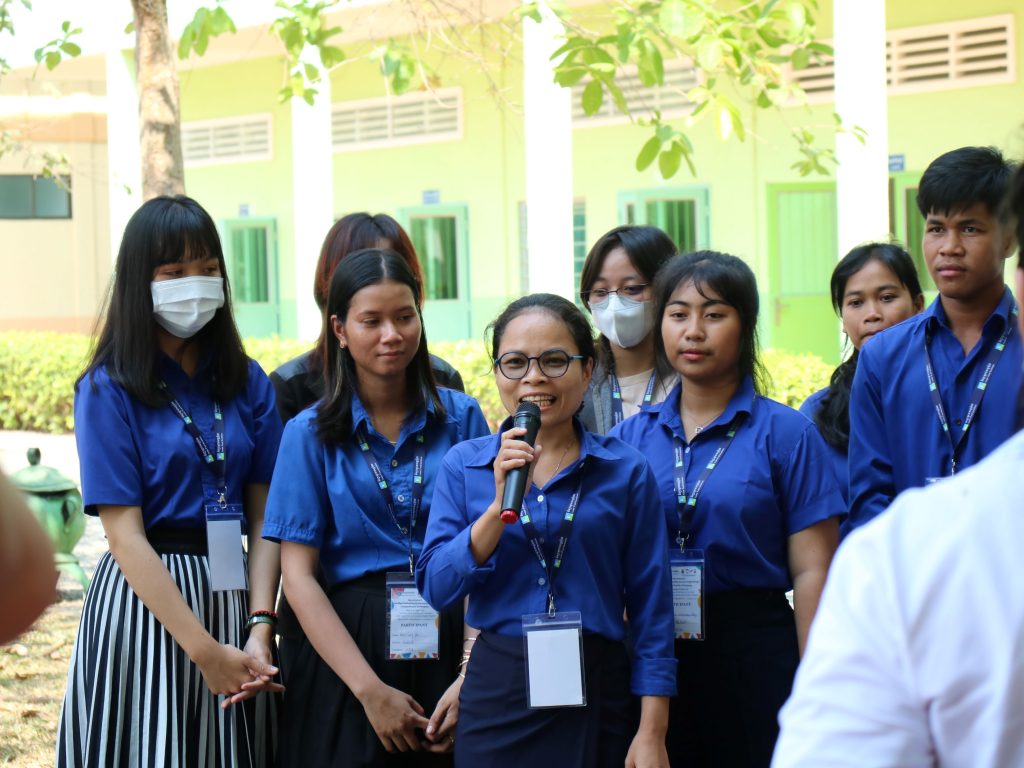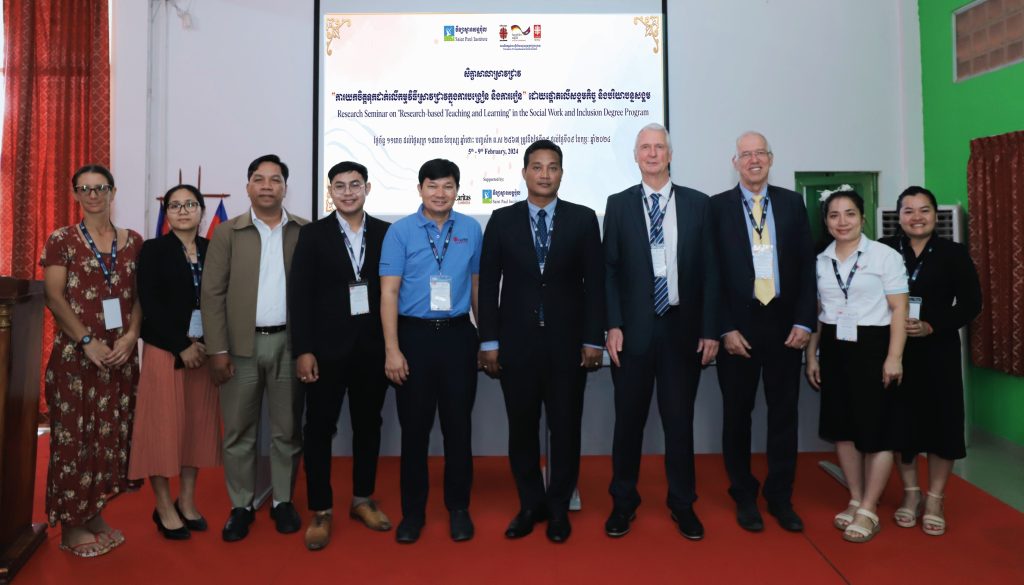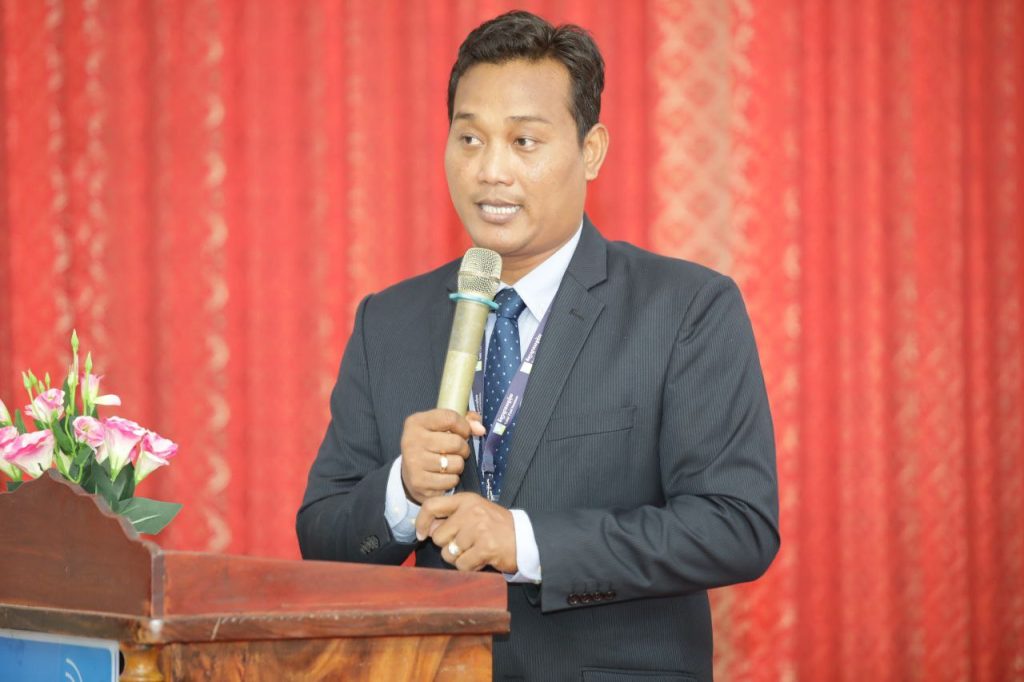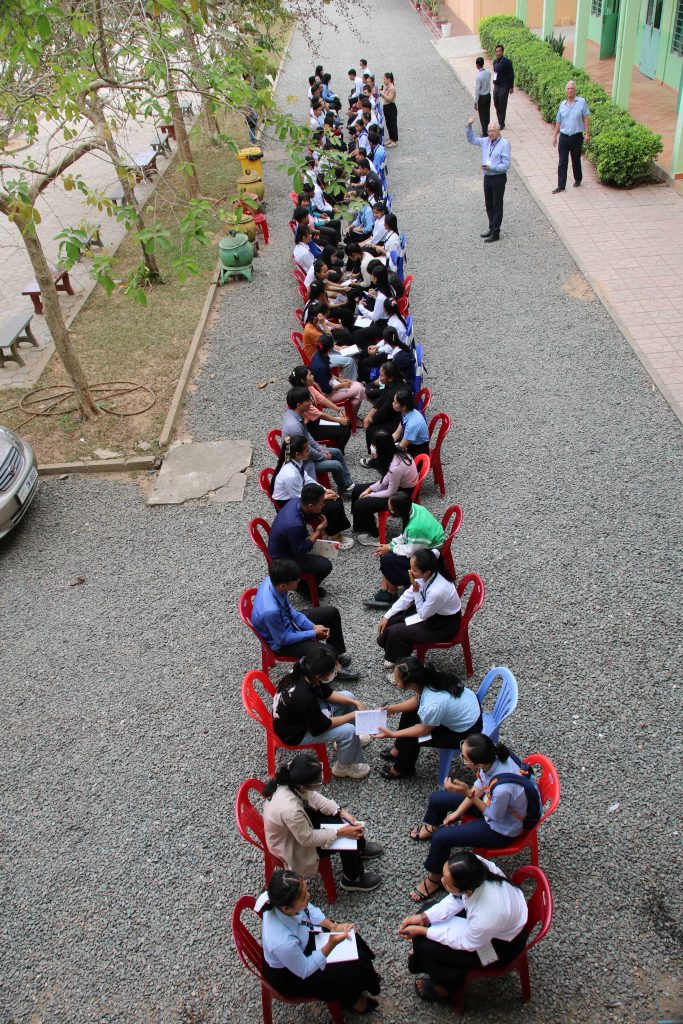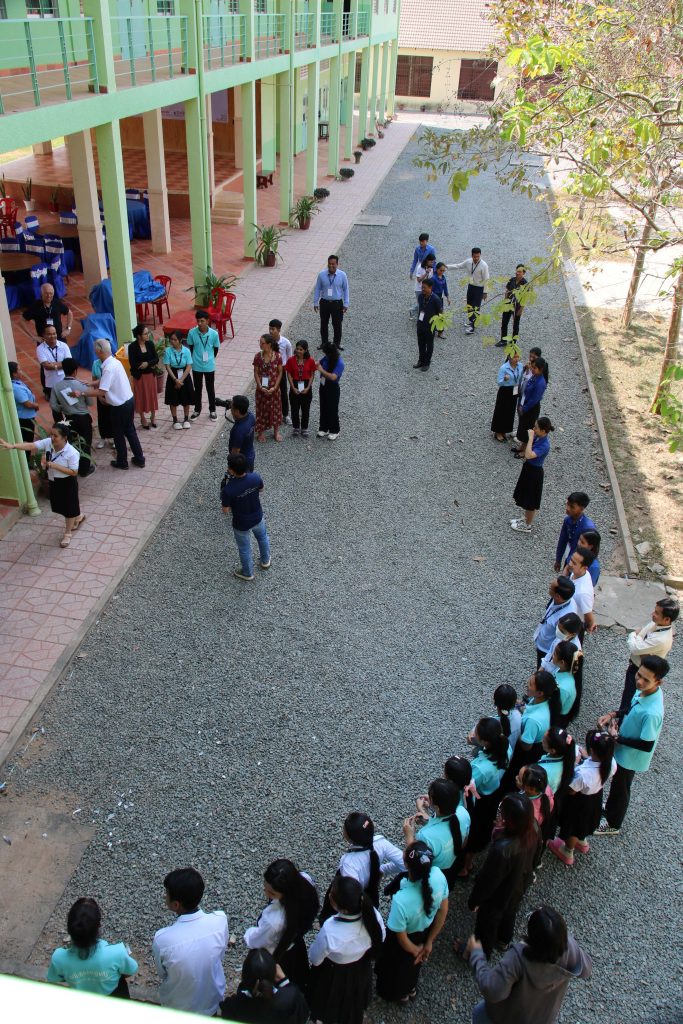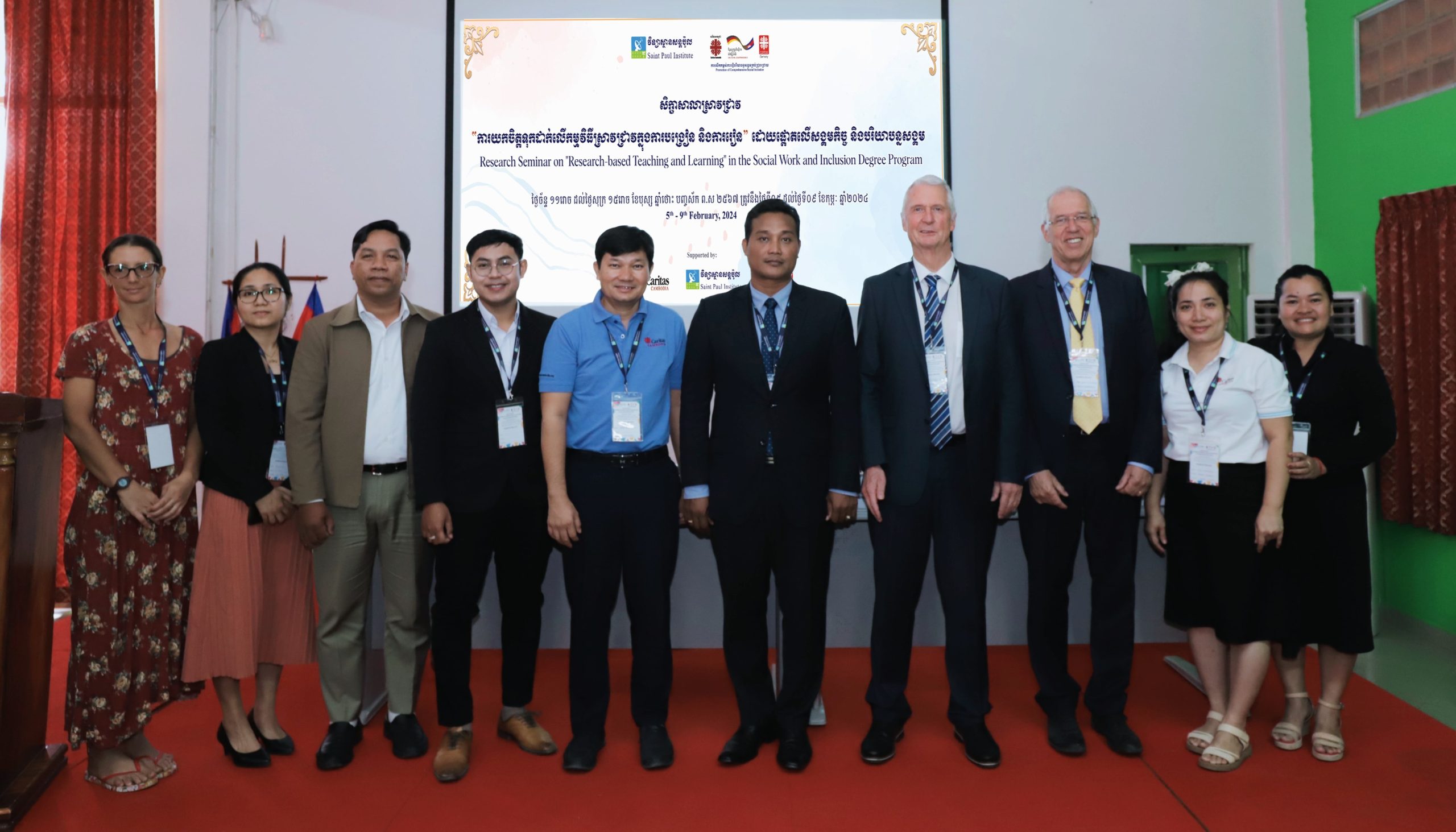On February 5-9, 2024, St. Paul Institute (SPI) in the Tramkak district of Takeo province, Cambodia, in partnership with Caritas Cambodia under collaboration project BMZ and Caritas Germany alongside Catholic University Applied Science in Freiburg, Germany, hosted a research seminar on “Research-based Teaching and Learning” for the Social Work and Inclusion Degree Program. The seminar was hosted by SPI with approximately 90 people, including student representatives from the Royal University of Phnom Penh (RUPP), the National Institute for Social Affairs (NISA), the Saint Paul Institute (SPI), and the Catholic Alliance for Charity and Development (CACD), together with speakers from the Ministry of Social Affairs, Veterans and Youth Rehabilitation (MoSAVY), Caritas Cambodia, Louvain Collaboration, as well as Professor Dr. Jens Clausen and Professor Dr. Edgar Kosler from the Catholic University of Applied Sciences Freiburg, Germany.
In the opening remarks of the seminar, Mr. Phon Sophal, the director of Saint Paul Institute, extended a warm welcome to all attendees on behalf of H.E. Bishop Olivier Schmitthaeusler, the Apostolic Vicar of Phnom Penh and the Founder and Chancellor of Saint Paul Institute. He also identified two of the seminar’s most important goals, which are to: (1) require all sending organizations to develop research projects for their respective institutions or organizations following the seminar; and (2) strengthen RUPP, NISA, and SPI’s collaboration going forward for future work pertaining to social work and social inclusion in Cambodian society. Mr.Kim Rattana, executive director of Caritas Cambodia, and Mr.Thorn Daraseyha, director of the policy department of MoSAVY, expressed optimism and strongly supported having this kind of seminar with the purpose of supporting students and staff to deepen on research and contribute to Cambodian society in education and research on social work and social inclusion. According to professors Dr. Edgar Kosler and Dr. Jens Lausen, the workshop focused on social inclusion and social work with subtitles in each day such as quantitative and qualitative methods, project management, time management, leadership in research projects, and research project proposals.
On the final day of the seminar, participants provided overwhelmingly positive feedback, expressing that the sessions were highly beneficial and directly relevant to the needs of social work students and NGO staff. They emphasized the value of the seminar in enhancing their understanding of research methodologies and requested more workshops focused on research-related topics in the future. Furthermore, Mr.Phon Sophal and Mr.Kim Rattana had a common conclusion: to continue together to help our society related to social work and social inclusion, as well as search for the possibility of integrating some relevant topics from seminars into the curricula of each institution.
